How much holding is bad for your baby?
Don’t hold the baby all the time, you are going to spoil him…
Let the baby cry and you will teach her to calm herself down…
Let the baby cry it out – he will fall asleep eventually…
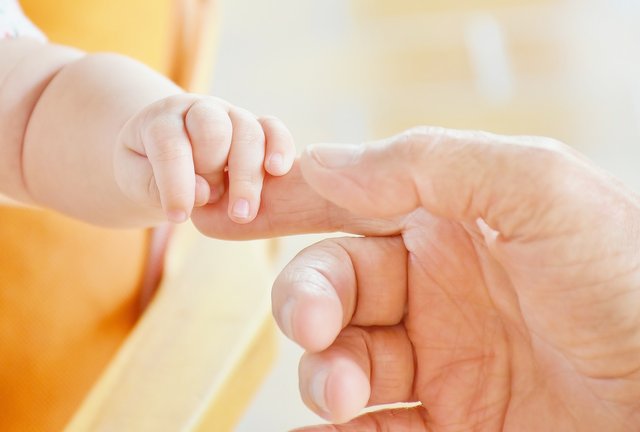
A friend of mine had a baby-boy. He was small and cute and … cried a lot. So she was holding him, singing to him, hugging him for hours at night. What a nice picture? However, as you can imagine, it was not that sweet. Her husband was very concerned about spoiling their son while holding him all the time. He insisted on letting him cry so that he can learn how to be independent and firm. She disagreed. As you can probably imagine, this issue brought up a lot of arguments in their family.
Then my husband and I had a baby. And It was our turn to start arguing with friends and family about stimulating bad habits in our newborn.

But may be it is worth asking whether, in fact, you can spoil a baby ? And how much holding is bad for your baby?
Yes, babies do cry. A lot. Actually that is their main occupation. Crying is the only inborn language used to express the basic needs they have. That’s right –their basic needs. Babies are not complicated individuals and they lack numerous necessities which grown-ups do have.
Babies only have few needs but these needs are fundamental for their survival.
Babies’ crying can be translated as the universal “I don’t feel well”, which incorporates “I am hungry”, “I am thirsty”, “I am cold”, “I am in pain”, “I am lonely”, “I am scared” , etc. Crying is their sole chance to ask for support as they are unable to survive on their own. They need others.
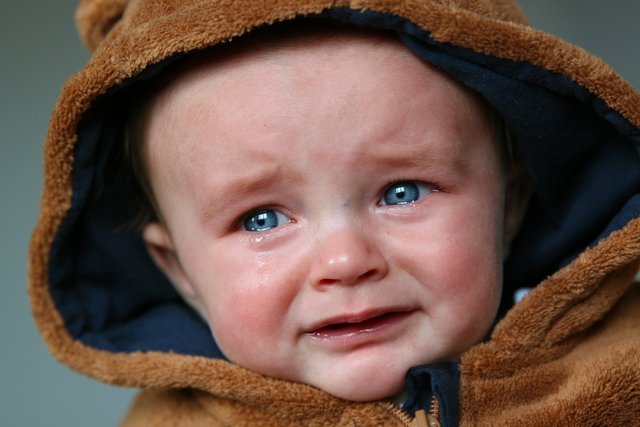
Generally, babies do not have their abstract thinking developed yet, so they cannot quite understand what you mean by “tomorrow”, “later” or “not now”. There is only “here and now” for them and respectively for the discomfort they feel.
In this very moment it is a question of life or death because they cannot assimilate that their discomfort is only temporary.
Their little bodies react as if their unease is threatening their survival and crying is the only way to ask for help. Thus, crying in itself is not a sign of a spoiled baby as, to a certain degree, it is like considering a thirsty person to be spoiled only because he has asked for water.
Why is continuous crying so bad for your baby?
Stress related hormones are secreted in a baby’s body when crying. These are the same hormones that trigger conditions in adults such as burn-out, generalized anxiety, depression as well as various dysfunctions. Besides that, the body and the brain of the baby are still developing. That is why systematic distress like “crying it out” could threaten mental and physical health in later life (Narvaez, D, 2011).
A Harvard University research shows that the environment plays a bigger role in triggering disease than genes (Center on the Developing Child at Harvard University, 2010). This means that what babies experience after birth like availability and responsiveness of the caregiver, sleep and food quality, chemical exposure (cosmetics, household cleaners, alcohol consumption and smoking of the mother while breastfeeding) is more likely to lead to a disease than genes.
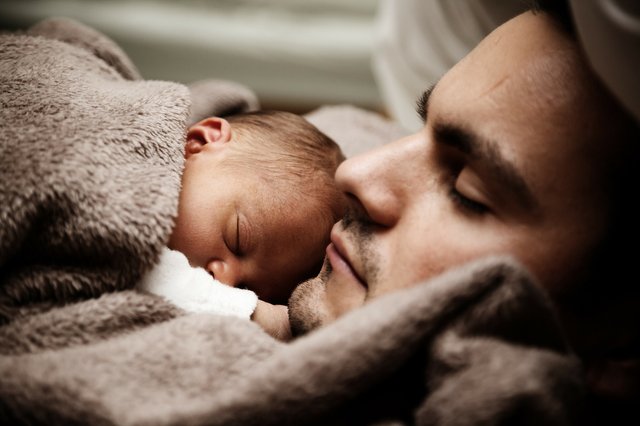
Actually the quality of the care which babies receive from family, relatives and teachers establishes the basis of developing key biological processes responsible for sleep-wake patterns, emotional regulation, attention and psycho-social functioning as a whole (Morris, A. et al., 2007; Scaramella, L.V, et.al., 2004).
What does this mean?
It means that if the caregiver is irresponsive, unavailable, and insensitive to the baby’s needs, this would affect baby’s ability to manage emotions, relax and have quality sleep and to develop good social skills later in life. In other words our earliest experience could affect how we feel later on in life:
- Do we suffer from excessive anxiety?
- Are we able to control our fear or anger?
- Do we have insomnia?
- Is it easy for us to resolve conflict and get along with others?
- Are we able to maintain healthy and fulfilling relationships?
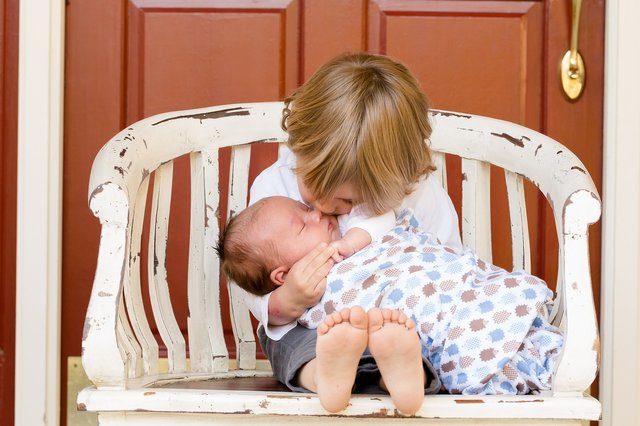
Babies who were upset and then soothed by the caregiver learn that nothing bad is going to happen and there is always someone who loves them and who would help them. Who does not wish that kind of a mindset for their children?! Furthermore, soon enough babies who were soothed learn how to sooth themselves (Burnham, M. M, et.al., 2002; Spruyt, K. et. al., 2008).
All these have a big positive input later in life in maintaining healthy relationships and positive attitude towards life – it makes it possible for us to trust others and be optimistic in difficult moments. We adopt the basic belief that life is not scary and we can cope with it.
When it comes to practice...
It sounds great, isn’t it? Usually everything sounds great in theory, but when it comes to practice things are way more difficult. Not to forget that in most cases the main caregiver is only one person and obviously they can’t hold their babies in their arms 24/7.
In fact, this was my biggest concern when I became a mom. With all the dangers of mistreating a little baby in mind I was very anxious about letting him cry now and then. There were times that it was impossible for me to hold him in that very moment (for example I was taking a shower), so I felt really guilty for the possibility of traumatizing him. I know that there are many mothers and fathers who would feel as if they are the worst parents on Earth if they cannot soothe their infant every time she or he starts crying…
So what happens then?
First of all, don’t worry!
Babies have other needs than being hold – for example they love to explore the world, practice new skills or play. Besides that, you can’t cause any psychological damage to a baby just because this one time the baby was crying and you weren’t there. The problem comes when a baby is systemically left alone and upset. This often happens due to a misunderstanding of the process of building character in young children. Ironically, building character takes quite the opposite parental behavior.
The more responsive, attentive and available you are to your baby today, the braver, happier, the more cheerful and self-reliance they will be tomorrow.
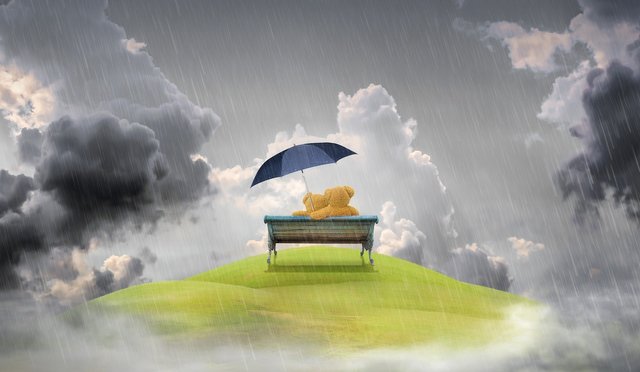
In a conclusion
Holding can’t be bad for your baby. Actually, if you would like to bring up a psychologically and physically healthy and sound individual who is also:
- courageous
- curious
- kind to themselves and others
- who adapts easily to new circumstances (like nursery, school or a new job later in life)
- and is able to maintain healthy relationships
... relaaax (!) and hold your baby any time he or she needs it.
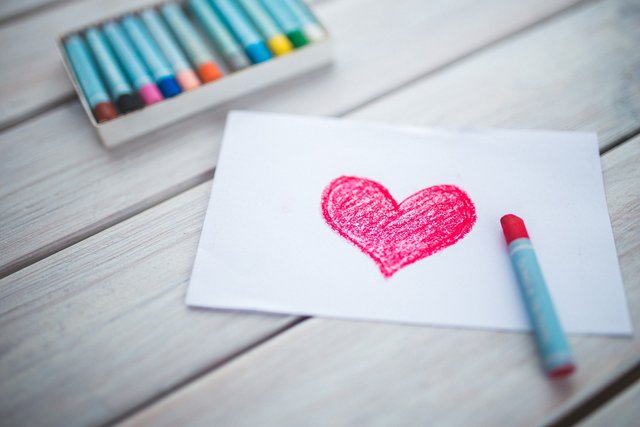
Thank you for reading this! What about you? Have you ever been advised to let your baby cry it out?
References:
Narvaez, D, 2011, Dangers of Crying it out, Psychology Today, https://www.psychologytoday.com/us/blog/moral-landscapes/201112/dangers-crying-it-out
Center on the Developing Child at Harvard University (2010). The Foundations of Lifelong Health Are Built in Early Childhood. http://www.developingchild.harvard.edu
Morris, A. S., Silk, J. S., Steinberg, L., Myers, S. S., & Robinson, L. R. (2007). The role of family context in the development of emotional regulation. Social Development, 16 (2), 361-388.
Scaramella, L.V., & Leve, L. D. (2004). Clarifying parent- child reciprocities during early childhood: The early childhood coercion model. Clin Child Fam Psychol Rev, 7, 89-107.
Burnham, M. M., Goodlin-Jones, B. L., Gaylor, E. E., Anders, T. F. (2002). Nighttime sleep-wake patterns and self-soothing from birth to one year of age: A longitudinal intervention study.
Child Psychol Psychiatry, 43, 713-725.
Spruyt, K., Aitken, R. J., So, K., Charlton, M., Adamson, T. M., & Horne, R. S. (2008). Relationship between sleep/wake patterns, temperament and overall development in term infants over the first year of life. Early Hum Dev, 84 , 289-296.
Images: Pixabay
It's quite interesting, in my family they let children cry when they are little, since they have the belief that it makes them stronger or something. It's really interesting to see that we should do exactly the opposite.
Yes, it is a common misbelief. Although science has been showing proof that it is wrong for decades now, people still do it because they are afraid that they would spoil the baby :(
Of course, when it comes to toddlers and young children it is a bit different but still explaining the situation and showing the child how to cope with his or her frustration is better than abstaining yourself of holding and cuddling him or her.
Thanks for commenting and reading, Martin! I think that you are one of the two people who actually read this article :D
Very instructive what you raise in your publications. Yes, not many read the publications of others here, but I think yours are worth it, you have a very good content, and the examples you give related to your personal life makes the publication is much richer.
Congratulations @insight-out! You have completed some achievement on Steemit and have been rewarded with new badge(s) :
Click on the badge to view your Board of Honor.
If you no longer want to receive notifications, reply to this comment with the word
STOPDo not miss the last post from @steemitboard!
Participate in the SteemitBoard World Cup Contest!
Collect World Cup badges and win free SBD
Support the Gold Sponsors of the contest: @good-karma and @lukestokes
Congratulations @insight-out! You have completed some achievement on Steemit and have been rewarded with new badge(s) :
Click on the badge to view your Board of Honor.
If you no longer want to receive notifications, reply to this comment with the word
STOPDo not miss the last post from @steemitboard!
Participate in the SteemitBoard World Cup Contest!
Collect World Cup badges and win free SBD
Support the Gold Sponsors of the contest: @good-karma and @lukestokes
I couldn't agree more.
Relaxed parents and environment is key. There is a reason why tribal cultures carry their babies all day long. They just are an integrative part of the adults life and work. Being carried around all day is nothing fancy in those cultures.
We live in a convenient world and do have our privacy in our households. Which is good and needed but once a baby is born this becomes a disadvantage. The intimate space of a home then shows its shadow sides. Moms do feel alone and separated and the strong longing for the caring village arises. To hand your baby just naturally to another sister, aunt oder mother to do your business for once in a while is better than to leave it alone. Even though babies don't get damaged by that I assume that if you ask a mother which scenario she'd like to pick than that were others are available just so.
Hi, Erica! Thanks for stopping by! Your comment reminded me about an article I read in Psychology Today while I was researching for this post. May be we are not quite aware of the consequences of our "modernized" view of childcare. They certainly (and sadly) are spreading far beyond the family itself to the society we live in. I am pretty sure this is not news for you, but just got me thinking :)